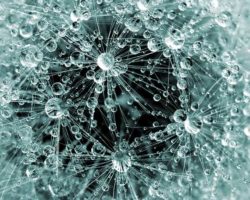Medical Regeneration
Funded by a Wellcome Trust Seed Award, the “Pasts, Presents and Futures of Medical Regeneration” project brought together a multidisciplinary cohort of researchers with combined expertise in sociology, biology, bioengineering, literature, disability studies, psychiatry, ethnology, philosophy, history of medicine and cultural studies, to examine the connections between past, present and future manifestations of medical regeneration.
From biomedical engineering to stem cell therapy, the growth of regenerative medicine in recent years has the potential to address challenges raised by stretched supplies of organ donors, chronic diseases and ageing populations.
 In clinical contexts, ‘regenerative medicine’ is a branch of research closely aligned with molecular biology; it is linked to regenerating human cells, tissues or organs through diverse practices including stem cell manipulation and the transplantation of organs grown in vitro. From a historical perspective, regeneration has appeared in discourses on diet, exercise, sleep and convalescence, and has been associated with diverse medical practices including surgery, electrotherapy and hormonal treatments. Ideas about regeneration have found expression in a range of cultural forms, including newspapers and magazines, popular science publications, literature, art and film.
In clinical contexts, ‘regenerative medicine’ is a branch of research closely aligned with molecular biology; it is linked to regenerating human cells, tissues or organs through diverse practices including stem cell manipulation and the transplantation of organs grown in vitro. From a historical perspective, regeneration has appeared in discourses on diet, exercise, sleep and convalescence, and has been associated with diverse medical practices including surgery, electrotherapy and hormonal treatments. Ideas about regeneration have found expression in a range of cultural forms, including newspapers and magazines, popular science publications, literature, art and film.
What, then, does it mean to ‘regenerate’, and what are the social, cultural, ethical and scientific implications of regeneration in its various forms? How do ‘natural’, self-administered practices of regeneration (diet, sleep, exercise) function alongside medico-technical interventions such as knee and hip replacements, or ‘senolytics’ – a new class of drugs currently under development designed to delay the ageing process by attacking senescent cells? How has regenerative medicine been conceived in previous centuries, and how might the implications of these practices inform understanding of our changing relationships with our bodies?
The research network met for three exploratory, interdisciplinary workshops in Leeds in the first half of 2016. These interrogated the meanings and practices of regeneration in a wide range of contexts, from clinical practice to popular culture. Selected presentations are available under the resources tab.
Follow the continuing discussion on Twitter using #medregen
